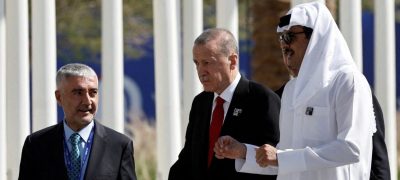The Islamic State group claimed responsibility on Tuesday for an attack on an Imambargah in Oman that resulted in at least nine deaths, including three attackers, marking a rare security incident in the oil-rich Gulf state. Among the deceased were four Pakistanis, an Indian, and a police officer, with 28 others wounded, including security personnel, according to officials from Pakistan, India, and Oman.
The assault occurred on Monday evening at the Ali bin Abi Talib mosque in Muscat’s Wadi al-Kabir neighborhood, located near an international school and a skateboard park, and less than 10 kilometers from luxury beach resorts. Such violence is unusual in the typically stable Gulf states, raising concerns about the Islamic State’s potential resurgence since it was largely defeated by a US-led coalition in 2017.
Read more: Shooting Near Imam Ali Mosque In Oman Kills Five During Muharram Gathering
Islamic State stated that three of its “suicide attackers” targeted a gathering, opening fire on worshippers and engaging in a standoff with Omani security forces until the following morning. They also claimed that 30 people, including five Omani security personnel, were killed in the incident.
The group released a video of the attack on its Telegram channel, and another verified video showed people fleeing the mosque amid gunfire. Authorities have not disclosed the motive for the attack or identified the attackers. The mosque, also known as Imam Ali mosque, serves the Shia community in Ibadi-ruled Oman, which has a small yet significant Shia minority. The Pakistani Foreign Ministry condemned the incident as a “terrorist” attack and reported that 30 survivors are receiving treatment in hospitals.
‘Unprecedented’
The Islamic State stated that its fighters targeted a gathering of Shia Muslims who were “practicing their annual rituals.” Monday evening marked the start of Ashura, a period of mourning observed publicly by Shias to commemorate the 7th-century death of Imam Hussain (RA), the grandson of Prophet Muhammad (PBUH). While Ashura has led to sectarian tensions in some Middle Eastern countries, it typically does not cause such issues in Oman, where the Ibadi sect fosters tolerance.
Most Omanis follow Sunni Islam or the Ibadi faith, which shares similarities with mainstream Sunni Islam.
Pakistan’s ambassador to Muscat, Imran Ali, described the incident as “unprecedented,” stating that such an event has never occurred in Oman’s history. He reported that most of the 30 victims were being treated for gunshot wounds, while others were injured while fleeing, including some who were crushed in the chaos.
In March, the Islamic State claimed responsibility for an attack that killed over 140 people at a concert hall near Moscow, and in January, it was behind two explosions in Iran that resulted in nearly 100 deaths. These high-profile attacks have raised concerns about the group’s potential resurgence, as its leadership remains hidden and its fighters are believed to operate in autonomous cells.









